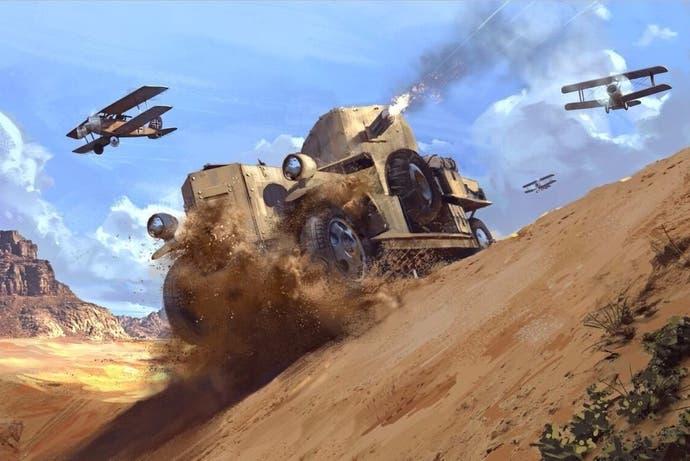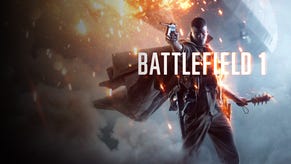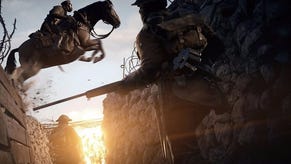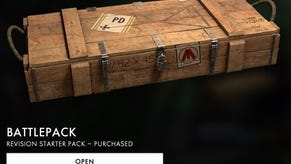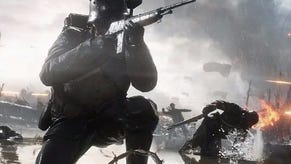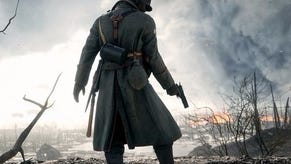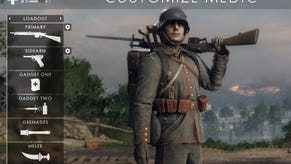Battlefield 1 Guide - Tips and tricks, what's new and everything you need to lead your team to victory
Everything you need to excel in Battlefield 1's multiplayer, out now.
Battlefield 1, in all its pro patria mori glory, takes players back to The Great War for the first time in the series' history. That means plenty of new - or technically old - weapons, vehicles, and multiplayer maps to wrap your head around.
Here in our Battlefield 1 Guide, Tips and Tricks page then, we'll be talking you through a quick rundown of what's new, as well as offering up some general tips and tricks for playing the game as well as links to our many Class and weapons guide for multiplayer.
A guide to what's new in Battlefield 1
Battlefield 1 sees a marked departure from the standard Battlefield formula. Gone are the days of Battlelog, Javelin Missiles and even weapon attachments. Instead, Battlefield 1 offers a stripped-back, streamlined experience, in many ways more similar to EA DICE's recent Star Wars Battlefront reboot.
Battlefield 1 Game Modes
- Conquest - Capturing and holding flags, and eliminating enemy troops, will run down the ticker to victory. Very large maps with full rosters of vehicles.
- Domination - The same as Conquest mode, but infantry-only, with smaller maps more suited to the lack of vehicles.
- Rush- Altered slightly this year to bring it more in line with Star Wars Battlefront's Walker Assault mode. Attackers still need to plant explosives on the Telegraphs, but defenders can now periodically use those Telegraphs to call in artillery strikes on spotted enemies, too.
- Team Deathmatch - Standard TDM, with the team with the most kills taking victory.
- War Pigeons - A completely new mode, players must find messenger pigeons and use them to send messages to supporting artillery for strikes on the enemy.
- Operations - Another totally new mode for Battlefield 1, Operations sees you take on multiple battles on multiple maps, as part of a "large scale war". See Operations as a themed playlist of maps, where you'll attack and defend according to the actual events of the First World War battles in those locations. Being a kind of 'curated' game mode, this is really what Battlefield 1 is all about.
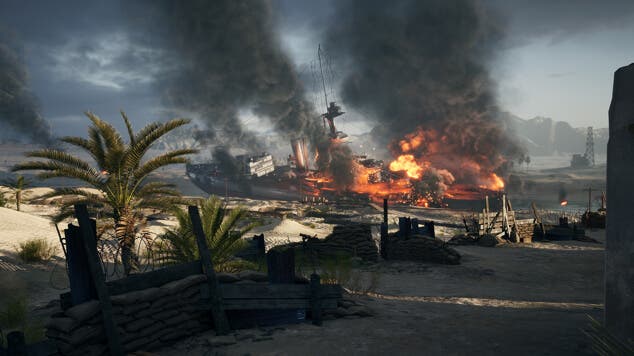
Battlefield 1 UI and Battlelog changes
- Battlelog is gone, but players can access everything about their soldier, including their loadouts - now just called Weapons and Gadgets - vehicles, Medals, Codex, Dog Tags, and Battlepacks, from the Soldier menu. You can also track your progress and stats, like winrate and top weapons from here, too.
- Rather than kitting out your solder ahead of battles, this is now all done in-game, with weapons you unlock along the way simply added to a quick menu in the class-select screen in-game.
- Battlepacks, since weapon attachments have been mostly removed, now simply contain skins and, if you're lucky, a puzzle piece for crafting one of two special melee weapons: the Bartek Bludgeon and the Sawtooth Knife.
- The attachments that do exist, as far as we know so far, are essentially a couple of different sights for each gun, alterations to the direction of recoil, and the option to attach or remove your bayonet.
- Weapon skins are also applied in-game from that same weapon customisation menu within the class menu.
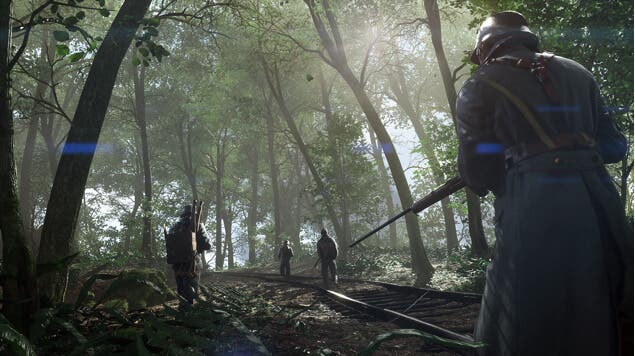
Battlefield 1 Guide Hub - all of our Battlefield guides in one place
Class guides
- Battlefield 1 Assault Class - loadouts and strategies, SMGs, shotguns, AT Mines
- Battlefield 1 Medic Class - loadouts and strategies, Rifles, Syringes, and more
- Battlefield 1 Support Class - loadouts and strategies, LMGs, Mortars, Ammo Crates
- Battlefield 1 Scout Class - loadouts and strategies, Sniper Rifles, Decoys, Tripwires
- Battlefield 1 Pilot, Tanker and Cavalry Class - loadouts and strategies
- Battlefield 1 Elite Classes - How to get the Flame Trooper, Sentry and Tank Hunter
Weapons, Gadgets and Unlocks
- Battlefield 1 Weapon stats - Complete gadget and weapon list
- Battlefield 1 unlocks list and how to spend War Bonds
- Battlefield 1 Battlepacks, Scrap and Puzzle pieces explained
- Battlefield 1 Kolibri - how to unlock the tiny gun
- Battlefield 1 Codex Entries - Requirements for every objective in campaign and multiplayer
Maps and Modes
Battlefield 1 tips and tricks to lead your team to victory
There are a few Battlefield 1 tips that have, really, held true across the entire franchise. Here's our general advice for playing, but be sure to check out our specific class guides for the Assault, Medic, Support, Scout and dedicated Pilot, Tanker and Cavalry classes, too.
- Play to the Objective - Commonly used in acronym form (and normally with an F in there, too...) playing to the objective is without doubt the most important thing you can do in any Battlefield game, let alone Battlefield 1. It's heavily incentivised, meaning that, even if you lose or your K/D ration suffers horribly, you'll still receive a whopping amount of experience and Warbonds for actually trying to win the game, rather than trying to get the prettiest headshots.
- Play with your Squad - The point here is kind of twofold: first, you want to actually form a squad, ideally of friends in party voice chat. Second, regardless of whether you're with friends or not, you'll want to stick with your squad. A balanced group of players, especially when evenly split between Assault, Medic and Support classes, can hold of swathes of enemies with a bit of good positioning and communication. Battlefield is the antithesis of a lone-wolf game, so party up!
- Positioning is key - As we touched on above, your positioning is also crucial in Battlefield, regardless of the class you play. Assaults will be terrible at long range, thanks to the wide spread of the SMGs and Shotguns, whilst Scouts will, of course, have a horrible time up close. Those obvious points aside though, you'll want to think about positioning more intricately. Mortars, for example, need to be in cover, but with a clear line of fire to your target area. LMGs, meanwhile, need to be at mid-range, where you're safe from being flanked, and seriously excel when pointed at a choke point on maps like Argonne Forest. Get creative with your positioning a flanking, and keep experimenting until you find a spot that really works.
- Adapt to the battle around you - Speaking of finding a spot, just because you have found a good one, doesn't mean you should keep heading back if the battle shifts and you suddenly find it hard to attack or defend. Be aware of the changes going on in-game. Reinforcement Behemoths, destructible buildings, sector captures and losses or just a simple shift in opposition tactics can be enough to completely disrupt your own plans. Keep a constant eye on the map, the objectives, and your teammates, and be prepared to rip up the plan and start again.
- Beginners should warm up with some classic Team Deathmatch - Battlefield plays surprisingly differently to other shooters, and Battlefield 1 is certainly no different there. Accuracy is generally far lower, gameplay far slower, and vehicles completely game-changing. If you're looking to get acclimatised to it for the first time - and we wouldn't blame you for being somewhat tentative - we recommend using the Assault class (which is closest to a standard close-to-medium-range shooter) on Team Deathmatch, before moving up from there. A full-scale game of Conquest on a huge map with all vehicles and planes is incredible, but also horribly difficult if you're not used to it (trust us, we've been there. A lot.).
- Vehicles can win you a game - Vehicles, being such a Battlefield staple, are rightly important in Battlefield 1. The relationship between infantry, tanks, and aircraft makes for a fascinating game of rock-paper-scissors; dominance of the air means freedom for your Bombers to attack ground units and tanks, but in order to earn that air superiority you'll have to sacrifice bombing potential and go for Fighters and other air-to-air combat ships. Likewise, a fully-manned, six-person Heavy Tank can, when well-positioned, take and hold a point for the entire game. Be prepared to sacrifice some anti-infantry potential and focus on taking down that pesky tank, rather than carry on sniping from safe distance, as ignoring vehicles will almost certainly result in defeat.
